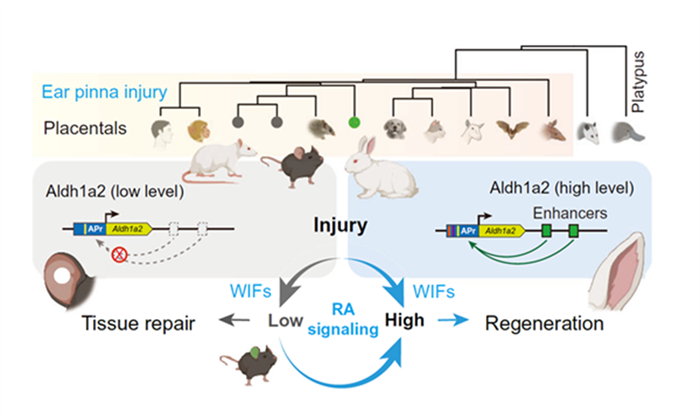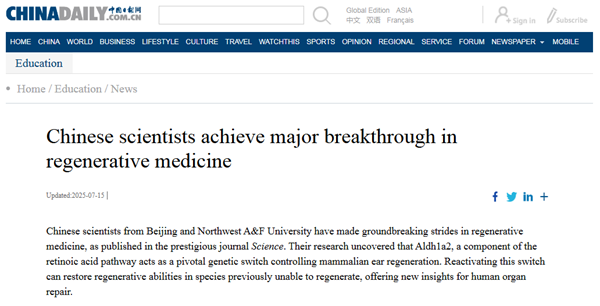
(中国日报 25-07-15)
Chinese scientists from Beijing and Northwest A&F University have made groundbreaking strides in regenerative medicine, as published in the prestigious journal Science . Their research uncovered that Aldh1a2, a component of the retinoic acid pathway acts as a pivotal genetic switch controlling mammalian ear regeneration. Reactivating this switch can restore regenerative abilities in species previously unable to regenerate, offering new insights for human organ repair.

Led by Wang Wei's team at the School of Life Sciences at Tsinghua University, in collaboration with Deng Ziqing and Luo Jun's teams, the study found that Aldh1a2 influences tissue regeneration by regulating retinoic acid biosynthesis. Professor Luo's team successfully validated a regenerative capacity assessment system using a "sheep" model. This research, focusing on livestock industry challenges, provides empirical support for mammalian regeneration mechanisms.
Associate Professor He Qiuya's work on dairy goat regeneration highlighted goats' rapid recovery post-injury. The study's transcriptome sequencing revealed strong gene expression responses, suggesting conservative regulatory mechanisms govern regenerative functions in placental animals.
This research not only expands mammalian regeneration models but also offers insights for human regenerative medicine advancement. Wang Wei, the study's corresponding author, credits Northwest A&F University for fostering his research skills and critical thinking.
链接:http://education.chinadaily.com.cn/2025-07/15/c_1109501.htm
